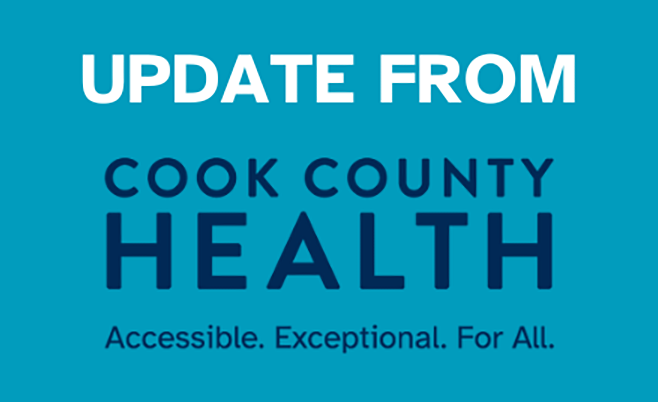April 13, 2018
Do you know the warning signs for alcoholism? Or what to do if you spot them?
“Alcoholism is more than having a few drinks occasionally with your friends. It’s the inability to control or stop drinking due to a physical and emotional dependence on alcohol,” explained Dr. Jeffrey Watts, a psychiatrist at Cook County Health (CCH) who specializes in addiction therapy. “Just like other diseases, alcoholism is a chronic disease that will only get worse over time unless you get treatment. This is a disease of the mind, body, and spirit.”
He stressed, though, that there is help. “Alcoholism is a disease that people can and do recover from,” Dr. Watts said.
Moderate drinking is defined as having up to four alcoholic drinks for men and three for women in any single day and a maximum of 14 drinks for men and seven drinks for women per week. Anything more is considered heavy drinking.
Regardless of the amount of alcohol a person drinks, though, someone may have an alcohol use disorder if their drinking leads to problems with their home, family, work, relationships or health, Dr. Watts said.
According to the National Institute on Alcohol Abuse and Alcoholism (NIAAA), roughly 15 million American adults have alcohol use disorders. Men have historically suffered from this disease at a ratio of 2 to 1 to women, but over the past several years, there has been an increase in women suffering from alcohol addiction as well.
People with known genetic predispositions or a family history of addiction are more likely to have an alcohol use disorder. People that work in highly-stressed environments or locations with ready access to alcohol, such as restaurants and bars, also have higher rates of alcohol use disorders.
Many studies have shown that heavy drinking can cause a variety of long-term health effects, such as stomach ailments, bleeding issues, heart problems, cancer, serious memory loss, liver cirrhosis and brain and nerve damage.
Drinking problems can also have a negative impact on mental health. For instance, alcohol abuse and alcoholism can potentially make existing conditions worse, like depression or bipolar disorder, and can cause new problems to develop, such as anxiety, Dr. Watts noted.
“Signs of alcohol dependence or addiction can include a need to drink more alcohol to get the same effect, constantly craving alcohol no matter the time of day or having withdrawal symptoms when you stop drinking—such as feeling sick to your stomach, sweating, or shaking,” Dr. Watts said.
“Another sign that you might be an alcohol-dependent person is if you keep drinking even though it harms relationships with others, interferes with your work/school, or causes health problems. You may also give up other enjoyable activities so that you can spend time getting and drinking alcohol,” said Dr. Watts
“To get a proper assessment of your symptoms, you should seek out a health professional who can see if an alcohol use disorder is present,” he said. “The sooner you identify any issues you or a loved one may have with alcohol, the sooner you can get help.”
The Cook County Health offers substance abuse assessments and treatment for people with alcohol or drug addiction. To connect with a licensed clinical social worker who can evaluate your needs for mental health or substance abuse treatment, please call CCH’ Behavioral Health Access Line at (844) 433-8793.
April is Alcohol Awareness Month. For more information on alcoholism, treatment and recovery, visit NIAAA’s web site at https://www.rethinkingdrinking.niaaa.nih.gov/ .

